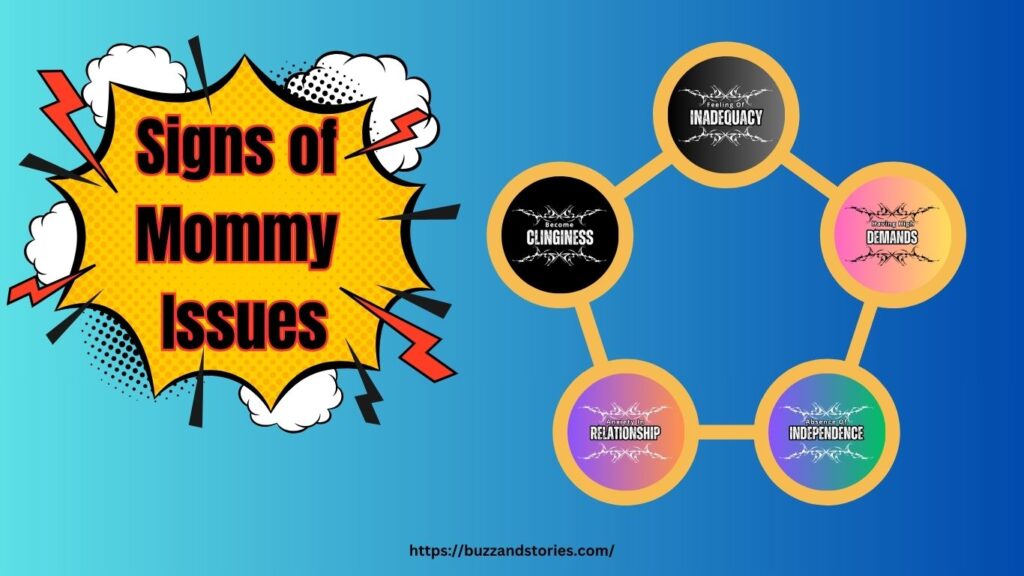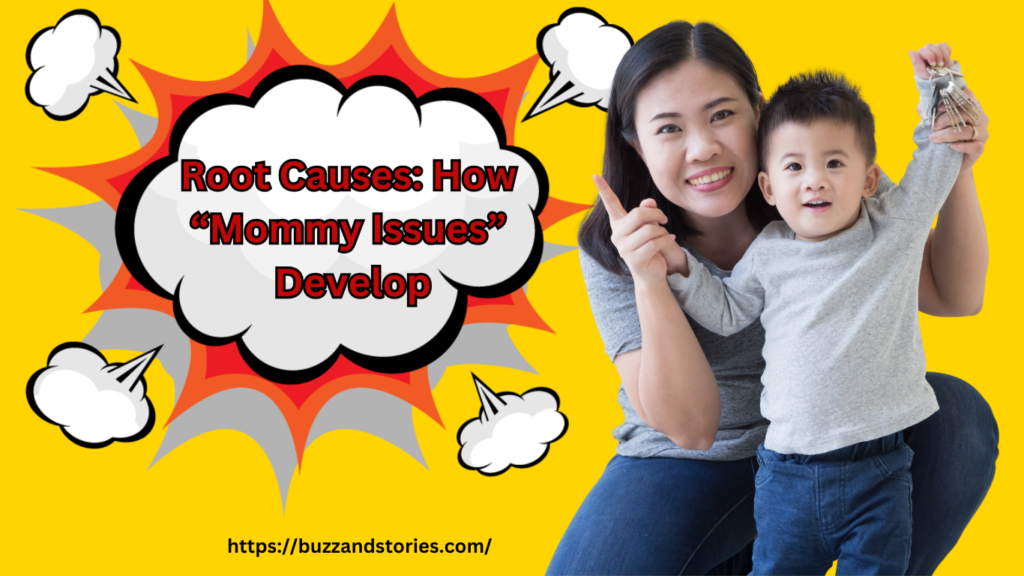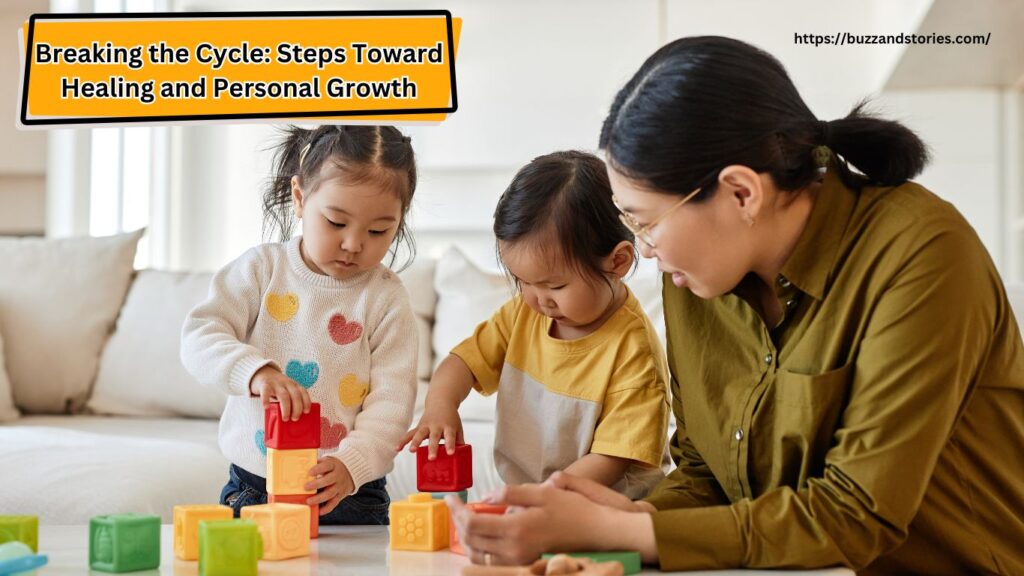Learning
What is “Men with Mommy Issues”?
Published
4 months agoon
By
Dan Harry
Have you ever come across the term “mommy issues” and wondered what it really means especially when it’s applied to men? Often used in a lighthearted or even dismissive way, “mommy issues” can point to deeper, complex emotional patterns shaped by early experiences with a mother figure. But what does it truly mean when we say a man has “mommy issues,” and how does this affect his relationships, self-perception, and personal growth?
In this post, we’ll explore what “mommy issues in guys” entails, unraveling the roots of this psychological concept and the visible signs it may create in adult relationships. Whether you’re trying to understand a partner, a friend, or even aspects of yourself, this guide will provide insights into the dynamics of these issues, why they develop, and, most importantly, how they can be addressed for healthier, more fulfilling connections. Let’s dive deeper into this often misunderstood topic and shed light on the impact of “mommy issues” in men’s lives.
I. Understanding “Mommy Issues”: What Does it Mean?

When people mention “mommy issues” in men, they’re often referring to specific emotional or behavioral patterns influenced by early relationships with their mothers. But what exactly does this term mean, and how did it come to be so widely used? Understanding the roots of “mommy issues” requires peeling back the layers of early development, attachment styles, and the significant impact a mother figure can have on a child’s emotional growth.
Breaking Down “Mommy Issues”
At its core, “mommy issues” points to difficulties or unresolved feelings rooted in childhood, particularly in connection with a mother or mother-like figure. These issues can manifest in a variety of ways, such as:
- Insecurity in relationships: Men with “mommy issues” may struggle with trusting others or feeling secure in their romantic relationships.
- Emotional dependency or avoidance: They might feel overly attached or, conversely, avoid intimacy altogether.
- Seeking approval or validation: Constantly looking for reassurance, they might rely on external validation to feel worthy or valued.
These behaviors can become deeply ingrained, often surfacing in adult life in ways that may not be immediately recognizable.
Why Do “Mommy Issues” Develop?
You may wonder, why do these patterns form in the first place? The roots often trace back to early childhood experiences, where relationships with primary caregivers lay the groundwork for how one interacts with others. Here’s how these dynamics typically unfold:
- Attachment Theory: A key concept in understanding “mommy issues” is attachment theory, which explores how early bonds influence emotional well-being. Secure attachments usually foster confidence and independence, while insecure attachments can lead to dependency or avoidance.
- Impact of Maternal Presence (or Absence): If a mother was overly controlling or emotionally unavailable, this can shape a child’s perception of love and acceptance, influencing adult relationships.
- Role of Parenting Style: The mother’s approach to parenting whether nurturing, neglectful, or overprotective can have a profound impact on a child’s self-esteem and coping mechanisms.
Common Misconceptions About “Mommy Issues” in Men
It’s easy to stereotype or misunderstand men with “mommy issues,” but doing so can minimize the depth and complexity of these experiences. Here are a few common misconceptions:
- Myth: Men with “mommy issues” are just “mama’s boys.”
- Reality: While some may have a close bond with their mother, many struggle with independence, trust, or self-worth.
- Myth: All “mommy issues” come from neglectful or absent mothers.
- Reality: Overprotective or highly controlling mothers can also create dependency, leading to “mommy issues.”
Understanding “mommy issues” isn’t about assigning blame but rather about recognizing how early influences shape adult behaviors. By learning more about this concept, you can approach the topic with empathy, whether for yourself or others, fostering healthier relationships and personal growth.
II. Root Causes: How “Mommy Issues” Develop

Why do “mommy issues” arise in some men while others seem unaffected? The roots lie in the complex interplay between childhood experiences and the emotional needs every person has from their primary caregivers. This section explores how different childhood circumstances can contribute to these issues, shaping relationship patterns and emotional behavior in adulthood.
1. Early Childhood Influences
The foundation for adult relationships is often built in childhood. During this formative time, a mother or mother figure plays a central role in shaping a child’s emotional development, establishing the basis for how they interact with the world around them. For some men, issues develop when a mother was either overly involved or emotionally distant. Both extremes can create long-lasting challenges in personal relationships.
2. Attachment Styles and Emotional Bonds
Attachment theory offers key insights into “mommy issues” in men. According to this theory:
- Secure Attachment: When a mother is consistently supportive and present, a child typically develops a secure attachment, leading to confidence in relationships.
- Insecure Attachment: If a mother is unpredictable, distant, or overly controlling, an insecure attachment may form. This can lead to issues such as fear of abandonment, dependency, or avoidance of closeness in adult relationships.
3. Effects of Mother-Child Dynamics
Every family dynamic is unique, but certain patterns can often contribute to “mommy issues.” These include:
- Overbearing Mothers: Men raised by overprotective or controlling mothers may struggle with independence and often seek external validation.
- Emotionally Absent Mothers: Men with emotionally unavailable mothers may find it hard to trust others and form deep, lasting bonds.
Understanding the specific childhood dynamics can offer valuable insights into why certain behavioral patterns emerge in adulthood.
4. The Impact of Absence, Neglect, or Over-Protectiveness
Absence of a mother or primary caregiver can be deeply impactful. Whether through neglect or simple unavailability, a lack of maternal presence can foster feelings of insecurity and low self-worth. Conversely, overprotective mothers may lead to dependency or anxiety, making it hard for a man to feel self-sufficient or confident in his relationships.
Unpacking these root causes sheds light on how deeply ingrained emotional patterns form and provides a clearer understanding of the unique challenges men with “mommy issues” face in their adult lives.
Creative Ways to Say ‘Have a Great Weekend’ in Professional Emails
III. Recognizable Traits of Men with “Mommy Issues”

How can you tell if someone has “mommy issues”? Certain behaviors and emotional responses often reveal the presence of unresolved issues from childhood, particularly in relation to a mother figure. While these traits may vary, they commonly influence romantic relationships and personal self-perception.
1. Emotional Dependency or Avoidance
Men with “mommy issues” tend to display one of two emotional extremes:
- Dependency: Some men may become overly reliant on partners for emotional support, often seeking constant validation.
- Avoidance: Others may avoid emotional closeness entirely, fearing vulnerability or dependency on others.
2. Difficulty Forming Lasting Relationships
Trust issues, insecurity, or a need for constant reassurance can make it challenging for these men to build and maintain healthy relationships. They may struggle with:
- Commitment: Fear of being abandoned or hurt can lead to reluctance in committing to relationships.
- Communication: Men with “mommy issues” may find it difficult to express emotions openly or to listen empathetically.
3. Insecurity and Self-Esteem Issues
Low self-esteem often accompanies “mommy issues,” as these men may doubt their own worth or fear rejection. This can show up in behaviors like:
- Seeking Approval: Constantly needing others to validate their choices or worth.
- Fear of Rejection: Worrying excessively about others’ opinions, often leading to anxiety or overcompensation.
4. Challenges with Authority and Boundaries
For some men, unresolved issues with a mother figure can create difficulties with setting boundaries or respecting authority, often linked to:
- Boundary Issues: Difficulty saying “no” or establishing personal limits, stemming from a fear of disappointing others.
- Authority Conflicts: Resentment or distrust toward figures of authority, reflecting unresolved conflicts from childhood.
Recognizing these traits can foster empathy and understanding, offering insight into the ways “mommy issues” impact men’s personal and social lives.
IV. The Impact of “Mommy Issues” on Romantic Relationships

“Mommy issues” don’t only affect a man individually they often play out in romantic relationships, sometimes creating a cycle of emotional turbulence. Here, we delve into the ways “mommy issues” shape romantic dynamics and how partners can approach these challenges with compassion and understanding.
1. How “Mommy Issues” Affect Communication and Trust
Trust and communication are pillars of any healthy relationship, yet men with unresolved “mommy issues” may find both challenging. Common difficulties include:
- Fear of Vulnerability: Avoiding deep conversations or keeping emotions at arm’s length.
- Need for Reassurance: Constantly seeking validation or approval from a partner, sometimes leading to tension.
2. The Cycle of Seeking Validation
Men with “mommy issues” often look to partners to fill the gaps in emotional support they missed during childhood. This can create an unhealthy dynamic, where the partner feels responsible for their self-esteem or emotional stability.
- Dependence on Approval: Relying heavily on a partner’s reassurance for self-worth.
- Attachment Anxiety: Feeling anxious about their partner’s affection or loyalty.
3. Coping Mechanisms That May Damage Relationships
Unresolved “mommy issues” can lead to coping mechanisms that may strain relationships, such as:
- Emotional Withdrawal: Pulling away when feeling overwhelmed, leading to misunderstandings.
- Over-Compensation: Trying too hard to please a partner, sometimes to the point of losing one’s sense of self.
4. Recognizing the Signs in Your Partner or Yourself
If you or your partner exhibit some of these traits, it’s helpful to acknowledge them openly. Understanding where these patterns come from can empower both partners to work toward healthier, more secure relationships.
A compassionate approach can help mitigate the impact of “mommy issues,” allowing individuals to foster trust and communication within their relationships.
V. Breaking the Cycle: Steps Toward Healing and Personal Growth

While “mommy issues” may feel deeply ingrained, it’s possible to work through these patterns and build healthier relationships. Healing involves a combination of self-awareness, support, and proactive steps toward personal growth.
1. Identifying and Acknowledging the Root Cause
The first step in healing is recognizing that these issues stem from childhood experiences. By reflecting on the origins, men can begin to understand why they behave the way they do and work to change those patterns.
2. Seeking Therapy or Counseling
Professional support, such as therapy, can be invaluable in addressing “mommy issues.” Therapists can help:
- Uncover Hidden Patterns: Identifying unresolved emotions and underlying behaviors.
- Develop Healthy Coping Strategies: Learning constructive ways to manage emotions and build stronger relationships.
3. Building Self-Awareness and Emotional Independence
Learning to rely on oneself for emotional support and validation can greatly improve confidence and relationship satisfaction. Strategies include:
- Practicing Mindfulness: Becoming more attuned to one’s thoughts and emotions.
- Setting Personal Goals: Focusing on self-improvement and personal achievements for a stronger sense of self-worth.
4. Healthy Ways to Nurture Relationships Moving Forward
Developing healthier relationship habits, such as setting boundaries and practicing open communication, can lead to more fulfilling connections. Steps include:
- Creating Boundaries: Establishing clear personal limits to prevent over-reliance on a partner.
- Communicating Needs: Learning to express emotions and needs openly without fear of judgment.
Healing from “mommy issues” is a journey that involves patience and effort, but with the right tools, men can break free from these patterns and foster healthier, happier relationships.
How do men with mommy issues behave?
Men with mommy issues may exhibit behaviors such as emotional dependency, fear of commitment, difficulty with trust, or avoidance of intimacy. They may seek constant validation or, conversely, struggle to open up emotionally.
How to date a guy with mommy issues?
Dating a guy with mommy issues requires patience, open communication, and clear boundaries. Encourage self-awareness, support his journey toward healing, and avoid enabling dependency, allowing space for personal growth within the relationship.
How to fix mommy issues for men?
Addressing mommy issues involves self-reflection, therapy, and building emotional independence. Working with a mental health professional can help men identify and heal underlying patterns, develop healthy coping strategies, and foster self-confidence.
What does a mother wound look like in a man?
A mother wound can manifest as low self-esteem, fear of rejection, difficulty establishing boundaries, or an over-reliance on external validation. It may also appear as a tendency to avoid vulnerability in relationships or struggle with authority figures.
Conclusion
In understanding “mommy issues” and their impact on men’s lives, it becomes clear that these patterns aren’t just simple quirks or personality traits they’re deeply rooted emotional responses shaped by early experiences. Whether you’re seeing these signs in yourself, a partner, or a friend, recognizing and acknowledging the influence of these issues is the first step toward healthier relationships and personal growth.
So, where do you go from here? Healing from “mommy issues” isn’t an overnight process. It involves self-reflection, patience, and often, professional guidance. By addressing the root causes, building self-awareness, and fostering emotional independence, men can begin to break free from these patterns and form relationships that are based on mutual respect, trust, and genuine connection.
If you’ve related to any part of this exploration, remember you’re not alone and change is entirely possible. By taking small steps, whether it’s seeking help or working on self-acceptance, men can redefine their relationship patterns and find greater fulfillment, both with themselves and others. After all, growth begins with the courage to understand ourselves more deeply and to take steps toward a more balanced and connected life.
FAQs
Common signs include emotional dependency, difficulty trusting others, insecurity, seeking validation from partners, or avoidance of intimacy. Men with mommy issues may struggle with commitment or exhibit controlling behaviors.
It means he may have unresolved emotional needs or insecurities rooted in his relationship with his mother, often leading to challenges in forming stable, healthy relationships as an adult.
Mommy issues can manifest as attachment difficulties, either through excessive dependency or an avoidance of closeness. Men may seek constant reassurance, exhibit low self-esteem, or show patterns of jealousy and control.
Key characteristics include insecurity, emotional dependency, fear of abandonment, struggles with authority, and a strong need for approval or validation from others, especially romantic partners.
While it’s unethical to manipulate anyone, understanding these dynamics highlights how such individuals may be more susceptible to seeking approval or fearing rejection. Encouraging healthy boundaries and self-worth is more constructive.
The “men with daddy issues vs. men with mommy issues” meme often humorously contrasts behaviors associated with absent or controlling fathers versus nurturing or neglectful mothers, highlighting exaggerated or stereotypical relationship dynamics.
-
Five Million People Watched Me Empty My Dishwasher
It sounds surreal, doesn’t it? The thought of five million people tuning in to watch someone perform the mundane task of emptying a dishwasher. Yet, that’s exactly what happened to me. What began as a random upload on social media turned into a viral phenomenon, leaving me both amused and fascinated by the power of…
-
Instagram Restricts Search Results for ‘Democrats’
Recent reports have surfaced highlighting Instagram’s restriction of search results for the term “Democrats,” raising concerns over content moderation and platform bias. Users searching for this political term encountered limited results or were redirected to general information pages, sparking debate over the social media giant’s decision-making process regarding sensitive political content. This development has prompted…
-
Canada Sidesteps Trump’s Tariffs – At Least for Now
In a move that has temporarily shielded Canada’s economy, the country has managed to avoid being impacted by the latest round of tariffs announced by former U.S. President Donald Trump. While many of America’s traditional trading partners brace for the economic blowback of these measures, Canada has, for now, escaped the fray. However, the reprieve…
You may like
Learning
The Future of Mankind by Bertrand Russell: A Critical Analysis
Published
2 months agoon
December 28, 2024By
Dan Harry
What does the future hold for humanity? As we navigate an era of rapid technological advancement, global challenges, and shifting moral landscapes, this question feels more pressing than ever. Decades ago, renowned philosopher Bertrand Russell sought to answer it in his thought-provoking essay, The Future of Mankind. His reflections resonate even today, offering profound insights into humanity’s potential paths both perilous and promising.
In this blog, we’ll critically analyze Russell’s vision, unraveling his core arguments and exploring their relevance in today’s world. What lessons can we draw from his ideas about cooperation, rationality, and ethical responsibility? How can his philosophy guide us in shaping a future that safeguards both progress and survival?
Let’s delve into the timeless wisdom of Bertrand Russell and examine what it means for the future of mankind.
I. Understanding Bertrand Russell’s Vision
Bertrand Russell was more than just a philosopher he was a visionary thinker who dared to tackle the big questions about humanity’s destiny. In his essay The Future of Mankind, Russell offers a roadmap to understanding our collective potential and the risks that threaten it. But why is his vision still so relevant today?
Let’s break it down:
1. Russell’s Philosophical Approach
At his core, Russell believed in the power of rationality and logic. He argued that humanity’s future depends on our ability to think critically and act with foresight. This emphasis on intellectual clarity serves as the foundation of his essay.
2. The Historical Context of “The Future of Mankind”
Written during the mid-20th century, a time marked by global conflicts and the dawn of nuclear weaponry, Russell’s essay reflects the urgency of his era. Yet, the themes he addresses war, division, and the role of science are timeless, echoing the challenges we face in the 21st century.
3. Key Themes Explored in the Essay
Russell dives into profound themes, such as:
- The interplay between human progress and ethical responsibility.
- The growing influence of science and technology on society.
- The threats posed by unchecked ambition and geopolitical rivalries.
These ideas lay the groundwork for understanding how Russell envisioned a balanced and sustainable future.
So, why does this matter today? Because Russell’s vision offers a mirror to our current challenges. As we face climate change, technological upheavals, and global tensions, his insights remind us of the enduring importance of collaboration, rational thinking, and ethical leadership.
Stay with us as we explore how these ideas unfold throughout The Future of Mankind.
II. The Core Arguments in “The Future of Mankind”
What exactly does Bertrand Russell propose about humanity’s future? His essay unpacks a complex web of ideas, balancing optimism with caution. At the heart of his arguments lies a compelling exploration of progress, science, and the ever-present dangers threatening mankind’s survival. Let’s take a closer look.
1. Russell’s Perspective on Human Progress
Russell believed that human progress isn’t inevitable it’s a choice. He emphasized that while advancements in technology and science have propelled humanity forward, they’ve also introduced new risks. Are we prepared to wield these advancements wisely?
2. The Role of Science and Technology
For Russell, science was both a blessing and a potential curse. On the one hand, it enables incredible leaps in medicine, communication, and knowledge. On the other, it powers destructive forces, such as nuclear weapons. He urged society to balance scientific innovation with ethical responsibility.
3. Threats to Survival
Russell highlighted three key threats:
- War: The constant risk of global conflict fueled by nationalism and power struggles.
- Division: The inability of nations to cooperate, leading to fragmented efforts to solve shared problems.
- Short-sightedness: A lack of long-term thinking, especially regarding the consequences of technological and political decisions.
These core arguments form the backbone of Russell’s essay, forcing readers to confront the delicate interplay between opportunity and risk.
What’s remarkable is how these warnings still resonate today. Are we doing enough to address these dangers? Or are we repeating the same mistakes?
III. Russell’s Solutions for Humanity’s Future
If the future seems precarious, does Bertrand Russell offer a way out? Thankfully, yes. His essay is as much a guidebook for action as it is a warning. Russell outlines practical solutions that focus on unity, rationality, and moral responsibility.
1. Global Cooperation as a Priority
Russell argued that humanity’s survival depends on nations working together. He envisioned a world where collective efforts rather than competition drive progress. Imagine what we could achieve if global powers united to tackle issues like climate change and inequality.
2. Rational Thinking in Decision-Making
Irrational fears and emotional reactions often lead to poor choices. Russell stressed the importance of logical thinking in political and social spheres. He believed that humanity’s greatest strength lies in its ability to reason and learn from past mistakes.
3. Ethical Responsibility
Russell didn’t shy away from discussing morality. He believed that progress without ethics is dangerous. By fostering a sense of shared responsibility, we can create a future that benefits all, not just a privileged few.
His solutions aren’t just philosophical musings they’re calls to action. The question remains: Are we willing to listen?
IV. Modern Relevance of Russell’s Ideas
Is Bertrand Russell’s vision still relevant today? Absolutely. The themes he explored in The Future of Mankind from cooperation to ethical responsibility are more urgent than ever in our rapidly changing world.
1. Resonance in the 21st Century
Russell’s warnings about war and division ring true in an age of geopolitical tension. Whether it’s international conflicts or political polarization, his insights remind us of the dangers of disunity.
2. Lessons for Addressing Today’s Challenges
Russell’s emphasis on rationality and ethics can guide us as we confront:
- Climate change and environmental degradation.
- The ethical dilemmas posed by artificial intelligence and automation.
- Growing disparities in wealth and opportunity.
3. Applying Philosophy to Modern Issues
Russell’s philosophy offers more than theoretical insights it’s a toolkit for navigating contemporary challenges. By embracing his principles, we can foster a more equitable, peaceful, and sustainable future.
Are we ready to take these lessons to heart? Or will history repeat itself?
V. Critiquing Russell’s Vision
While Russell’s ideas are profound, no vision is without its flaws. A critical analysis reveals both the strengths and limitations of his arguments, offering a balanced perspective on his work.
1. Strengths of Russell’s Insights
- Timeless relevance: His warnings about war, division, and short-sightedness remain strikingly applicable.
- Logical clarity: Russell’s arguments are structured and easy to follow, making them accessible to a wide audience.
2. Limitations of His Vision
- Overlooked cultural complexities: Russell’s solutions sometimes assume a level of global cooperation that may not align with cultural and political realities.
- Idealism vs. pragmatism: His ideas, while inspiring, occasionally lack concrete steps for implementation.
3. Balancing the Critique
Despite these limitations, Russell’s work remains invaluable. His ability to spark dialogue and inspire action outweighs any perceived shortcomings.
By understanding both the strengths and gaps in his vision, we can adapt his ideas to better suit modern realities.
VI. Implications of Russell’s Thoughts for Future Generations
What does The Future of Mankind mean for the next generation? Russell’s insights are more than philosophical musings they’re a call to action for individuals, leaders, and educators.
1. The Responsibility of Individuals and Nations
Russell believed that every individual and nation has a role to play in shaping humanity’s future. From grassroots activism to global diplomacy, his message is clear: collective effort is key.
2. The Role of Education
Education, for Russell, was the cornerstone of progress. By fostering critical thinking and ethical awareness, schools can empower young minds to tackle the challenges of tomorrow.
3. Inspiring Hope and Action
Russell’s philosophy isn’t just about warning it’s about hope. By embracing his principles, future generations can build a world rooted in cooperation, innovation, and sustainability.
His ideas remind us that the future isn’t a given it’s a creation. The question is: What kind of future will we choose to create?
Conclusion
As we reflect on Bertrand Russell’s The Future of Mankind, one thing becomes abundantly clear: the challenges he highlighted are as urgent now as they were in his time. His vision serves not only as a warning but also as a blueprint for how we can shape a better tomorrow.
Russell’s call for rationality, global cooperation, and ethical responsibility resonates deeply in a world grappling with climate change, technological disruption, and geopolitical tensions. His essay urges us to ask hard questions: Are we prioritizing unity over division? Are we thinking long-term about the consequences of our actions? And, perhaps most importantly, are we embracing our shared responsibility for humanity’s future?
As individuals, leaders, and members of a global community, we each have a role to play. Whether it’s fostering cooperation in our daily lives, supporting education that emphasizes critical thinking, or advocating for policies that promote sustainability and equity, small actions can collectively lead to monumental change.
The future of mankind is not set in stone it’s a story we are writing together. By revisiting the timeless wisdom of thinkers like Bertrand Russell and applying his insights to today’s challenges, we can ensure that the narrative we create is one of progress, compassion, and hope.
So, what steps will you take to contribute to this future? The answers may define the legacy we leave for generations to come.
FAQs
-
What is the summary of ideas that have helped mankind by Bertrand Russell?
Russell emphasized rationality, ethical responsibility, scientific progress, and global cooperation as the key ideas that have helped mankind navigate challenges and foster progress.
-
What are the main ideas of Bertrand Russell?
Russell’s main ideas include the importance of logic and reason, the pursuit of knowledge through science, the dangers of war and division, and the need for ethical leadership to ensure humanity’s survival.
-
Who wrote the Future of Mankind essay?
The Future of Mankind essay was written by the renowned philosopher and mathematician Bertrand Russell.
-
What is the theme of Russell’s essays?
The recurring themes in Russell’s essays are rationality, the importance of peace, the ethical use of scientific advancements, and the critical need for global unity to address humanity’s challenges.
-
What is the main point that Bertrand Russell makes for why we should study philosophy?
Russell argued that studying philosophy broadens our perspective, fosters critical thinking, and helps us address fundamental questions about existence, ethics, and knowledge, ultimately enriching both our individual lives and society as a whole.
-
“A Matter of Destiny: How Jimmy Carter’s Vision Redefined U.S.-China Relations and Altered the Course of History”
In the annals of history, few moments stand out as transformative as the decision by U.S. President Jimmy Carter to formalize diplomatic relations with China. It was a move that not only shifted the geopolitical landscape but also heralded an era of economic and cultural interconnectedness between two of the world’s most powerful nations. For…
-
“A New Era Begins: Potter Faces Major Challenges as West Ham Manager”
West Ham United Football Club has officially ushered in a new era with the appointment of Graham Potter as their new manager. Known for his tactical ingenuity and ability to nurture talent, Potter steps into the managerial role amidst growing expectations and a host of challenges that demand immediate attention. Potter’s arrival at the London…
-
“Airport’s Patient Lounge Relocates to a Temporary New Space”
The patient lounge at [Airport Name], a dedicated area designed to offer comfort and convenience to travelers with special medical needs, has been relocated to a temporary location while the original facility undergoes renovations. This shift aims to ensure uninterrupted services for those who rely on the lounge during their travel while upgrading the primary…
Learning
Can You Taxidermy a Human? Exploring the Ethics, Legality, and Practicality
Published
3 months agoon
December 6, 2024
Taxidermy is an age-old practice, primarily associated with preserving and displaying animals for educational, artistic, or sentimental purposes. However, a question that occasionally stirs curiosity is: Can you taxidermy a human? While it might seem like an odd inquiry, it touches on aspects of history, ethics, legality, and science. This article dives into the fascinating details to address this peculiar question and unravel its complexities.
What Is Taxidermy?
Before addressing whether you can taxidermy a human, let’s understand what taxidermy entails. The process involves removing the skin of an animal, preserving it, and mounting it on an artificial frame to recreate its original appearance. Traditionally used for hunting trophies and museum displays, taxidermy is an intricate art requiring anatomical precision and aesthetic skill.
Can You Taxidermy a Human? The Straight Answer
Theoretically, it is possible to taxidermy a human using the same principles applied to animals. Humans are mammals, and the skin and tissues can undergo preservation. However, human taxidermy is not practiced due to cultural, ethical, and legal constraints. Let’s explore why this concept remains largely hypothetical.
The Historical Context of Human Preservation
While taxidermy of humans is not common, there are historical examples of human preservation that provide context:
- Mummification: Ancient Egyptians perfected the art of mummifying bodies for spiritual and religious reasons. This process, though different from taxidermy, reflects humanity’s long-standing interest in preserving the deceased.
- Plastination: Developed by Dr. Gunther von Hagens, plastination replaces bodily fluids with polymers, allowing human bodies to be displayed for educational purposes in exhibits like “Body Worlds.” Although not taxidermy, plastination shares similar preservation goals.
- Famous Examples: The preserved body of philosopher Jeremy Bentham, displayed at University College London, is another example of preservation. However, only his skeleton and wax head remain, encased in his original clothes. This is not taxidermy in the true sense, but it shows how human remains have been historically treated.
Why Is Human Taxidermy Not Practiced?

1. Ethical Considerations
The idea of turning a human into a permanent display raises profound ethical dilemmas.
- Respect for the Dead: Many cultures view the dead with reverence, making the concept of turning them into an exhibit deeply unsettling.
- Consent Issues: Even if someone agreed to be taxidermied, societal norms and the emotional impact on families and communities might hinder such practices.
2. Legal Restrictions
In most countries, human taxidermy is explicitly or implicitly prohibited by laws governing human remains.
- Regulations on Handling Human Corpses: Bodies are typically subject to burial, cremation, or anatomical donation, with strict oversight on their treatment.
- Cultural Norms Codified in Law: Laws often reflect societal values, which prioritize dignity over artistic or scientific curiosity when dealing with human remains.
3. Practical Challenges
Even if ethical and legal hurdles were removed, practical challenges remain:
- Complex Anatomy: Human skin is thinner and more elastic than many animals commonly preserved, making it harder to work with.
- Aesthetic Considerations: Recreating a human form accurately, including facial expressions, would be daunting and potentially grotesque.
Alternatives to Human Taxidermy
While you can’t taxidermy a human, there are alternatives for those interested in preserving memories:
- Memorial Jewelry: Transforming ashes into diamonds or keepsakes is a popular option for remembrance.
- Plastination: Ideal for those interested in contributing to science, plastination allows bodies to be used for education and research.
- Digital Preservation: As technology evolves, digital memorials and virtual avatars are gaining popularity as non-physical ways to immortalize loved ones.
Modern Curiosities: Why the Question Persists
The question, “Can you taxidermy a human?” lingers partly due to fascination with death and the macabre. Popular culture, horror movies, and art installations occasionally play with the concept, keeping it alive in public imagination. However, it remains firmly in the realm of speculation rather than reality.
Final Thoughts: Should You Even Consider Human Taxidermy?

While the answer to “Can you taxidermy a human?” is technically yes, the resounding consensus is no, you shouldn’t. Important Point: Ethical, legal, and practical barriers make human taxidermy an untenable option. Instead, we have numerous respectful and innovative ways to honor the memories of those we’ve lost.
Ultimately, how we treat our dead reflects our humanity. The question of taxidermying a human may provoke curiosity, but the answers highlight our deep respect for life and its inevitable end.
FAQs
-
Has Any Human Ever Been Taxidermied?
No human has been taxidermied in the traditional sense. While there are historical examples of preserved human bodies, such as mummies, plastinated specimens, or relics like Jeremy Bentham’s display at University College London, these do not qualify as taxidermy. Taxidermy involves removing and treating the skin to be mounted on a form, which has not been applied to humans due to cultural, ethical, and legal restrictions.
-
Can You Do Taxidermy Yourself?
Yes, you can perform taxidermy yourself if it is legal where you reside on animals. DIY taxidermy requires training, specialized tools, and knowledge of anatomy, preservation techniques, and safety protocols. Taxidermy kits and online tutorials are available for beginners, but starting with small animals is advisable due to the technical challenges involved.
However, performing taxidermy on humans is illegal in most places and requires professional embalming or plastination techniques for body preservation. -
Is Taxidermy Illegal in the US?
Taxidermy itself is not illegal in the United States, but it is heavily regulated:
Wildlife Laws: Federal and state laws, like the Migratory Bird Treaty Act or the Endangered Species Act, restrict taxidermy of protected species.
Permits: In many states, you need a permit to practice taxidermy professionally or to preserve certain animals.
Human Taxidermy: It is illegal to taxidermy a human body due to strict laws governing the handling of human remains. Accepted practices for human bodies include burial, cremation, or donation to science. -
Is Taxidermy Safe to Touch?
Yes, taxidermy mounts are generally safe to touch if preserved correctly. However, there are some considerations:
Chemical Exposure: Older taxidermy pieces may have been treated with arsenic or other harmful chemicals, which could pose health risks.
Maintenance: Modern taxidermy uses non-toxic preservatives, but handling pieces too often can cause wear and tear.
Hygiene: Always wash your hands after touching taxidermy to avoid transferring dirt, oils, or potential allergens.
-
Five Million People Watched Me Empty My Dishwasher
It sounds surreal, doesn’t it? The thought of five million people tuning in to watch someone perform the mundane task of emptying a dishwasher. Yet, that’s exactly what happened to me. What began as a random upload on social media turned into a viral phenomenon, leaving me both amused and fascinated by the power of…
-
Instagram Restricts Search Results for ‘Democrats’
Recent reports have surfaced highlighting Instagram’s restriction of search results for the term “Democrats,” raising concerns over content moderation and platform bias. Users searching for this political term encountered limited results or were redirected to general information pages, sparking debate over the social media giant’s decision-making process regarding sensitive political content. This development has prompted…
-
Canada Sidesteps Trump’s Tariffs – At Least for Now
In a move that has temporarily shielded Canada’s economy, the country has managed to avoid being impacted by the latest round of tariffs announced by former U.S. President Donald Trump. While many of America’s traditional trading partners brace for the economic blowback of these measures, Canada has, for now, escaped the fray. However, the reprieve…
Learning
How Many Liquid IV Can You Drink a Day? A Detailed Guide
Published
3 months agoon
December 6, 2024
In the world of hydration solutions, Liquid IV stands out as a convenient and effective product. Known for its unique Cellular Transport Technology (CTT), it promises to deliver hydration and essential nutrients to your body faster than water alone. But an important question arises: how many Liquid IV can you drink a day? Overconsumption of anything, even something as beneficial as a hydration supplement, can lead to unintended side effects. Let’s dive into this topic in detail.
Understanding Liquid IV and Its Benefits
Before determining how many Liquid IV can you drink a day, it’s crucial to understand its composition and purpose. Liquid IV is a powdered drink mix that combines:
- Electrolytes: Sodium, potassium, and magnesium for hydration balance.
- Vitamins: B3, B5, B6, B12, and vitamin C to boost energy and immunity.
- Sugar and Salt: For optimized hydration through osmosis.
Liquid IV is primarily designed to aid hydration during dehydration caused by exercise, heat, illness, or travel. However, while it’s beneficial, it’s not a replacement for water or a balanced diet.
How Many Liquid IV Can You Drink a Day?
The general recommendation is 1-2 servings of Liquid IV per day. This guideline ensures you get the benefits without overloading your body with excess sodium or vitamins. However, individual needs can vary based on factors such as:
- Activity level: Athletes or individuals engaged in intense physical activity may need more electrolytes.
- Health conditions: Certain medical conditions (e.g., kidney issues) may require caution when consuming electrolyte-rich products.
- Daily diet: If your diet already includes high sodium, overconsumption of Liquid IV could be problematic.
Important Points to Keep in Mind

- Hydration Needs Vary: While the product is safe, consuming too much can lead to an imbalance in your electrolyte levels, known as hypernatremia. It’s always best to balance hydration with plain water.
- High Sodium Content: Each packet of Liquid IV contains around 500mg of sodium. The FDA recommends a daily sodium intake of less than 2,300mg. Consuming multiple packets could quickly push you over this limit.
- Consult a Professional: If you’re using Liquid IV for medical reasons or due to chronic dehydration, consult your healthcare provider to determine how many Liquid IV can you drink a day safely.
When Should You Consider Drinking More?
There are specific scenarios where increasing your Liquid IV intake may be beneficial:
- During intense workouts: If you’re sweating heavily, your body loses electrolytes that need replenishment.
- Hot climates: Excessive heat can lead to rapid dehydration, making products like Liquid IV essential.
- Post-illness recovery: Vomiting, diarrhea, or fever can drain your body’s fluids and electrolytes, requiring additional support.
Even in these cases, limit yourself to 3 servings per day unless advised otherwise by a doctor.
Can You Overdo Liquid IV?
Yes, overconsumption of Liquid IV can lead to unwanted side effects such as:
- Electrolyte imbalance: Too much sodium or potassium can strain your kidneys and heart.
- Digestive discomfort: Some individuals report bloating or stomach upset after consuming multiple servings.
- Vitamin overdose: Though rare, excessive intake of certain vitamins (e.g., B6) can cause issues like nerve damage over time.
Important Tip: Stick to the product’s serving suggestions, and incorporate plain water into your routine.
Tips for Safe Consumption
- Stick to 1-2 packets per day unless you’re in extreme conditions requiring more hydration.
- Pair with plain water: Use Liquid IV as a supplement, not a replacement for regular hydration.
- Monitor your body: If you experience symptoms like swelling, dizziness, or digestive discomfort, reduce your intake.
- Use situationally: Liquid IV is ideal for high-activity days or illness recovery, not as an everyday drink.
Conclusion: How Many Liquid IV Can You Drink a Day?

Liquid IV is a powerful hydration aid, but moderation is key. For most people, 1-2 servings a day are sufficient to enjoy its benefits without risking side effects. Pay attention to your body’s needs, activity level, and overall diet to determine what’s right for you.
Remember, while Liquid IV can be a great addition to your hydration routine, it’s not a magic bullet. Balance it with a healthy lifestyle, a nutritious diet, and adequate water intake for optimal results.
Sundance Film Festival 2025: Awards, Dates, Venue & Must-Know Insights!
FAQs
-
Can You Have Too Much Liquid I.V.?
Yes, consuming excessive amounts of Liquid I.V. can lead to potential health risks. Each packet contains about 500 milligrams of sodium, which is approximately 22% of the recommended daily value. Overconsumption may result in elevated sodium levels, potentially causing high blood pressure and fluid retention. Additionally, excessive intake of certain vitamins present in Liquid I.V. could lead to adverse effects. It’s advisable to adhere to the recommended serving size and consult with a healthcare professional if you have underlying health conditions.
-
How Many Bottles of Water Is Equal to One Liquid I.V.?
Liquid I.V. claims that one serving, when mixed with 16 ounces of water, can provide the same hydration as drinking 2–3 bottles of water. This is attributed to their Cellular Transport Technology, which purportedly enhances the absorption of water and key nutrients into the bloodstream.
-
Does Liquid I.V. Actually Hydrate You?
Yes, Liquid I.V. is formulated to aid in hydration. It contains a specific ratio of sodium, glucose, and potassium, which can facilitate faster water absorption in the body. This composition is based on the principles of oral rehydration solutions used to treat dehydration. However, for individuals who are not engaging in intense physical activity or experiencing significant fluid loss, plain water is generally sufficient for maintaining hydration.
-
How Long Does It Take for Liquid I.V. to Kick In?
The time it takes for Liquid I.V. to take effect can vary based on individual physiology and hydration status. Generally, users may begin to feel the hydrating effects within 15–30 minutes after consumption. This rapid absorption is due to the presence of electrolytes and glucose, which facilitate quicker uptake of fluids into the bloodstream.
- Tony Slattery and the Legacy of ‘Whose Line Is It Anyway?’: Life, Career, and Untold StoriesWhen you think of iconic figures in comedy, does Tony Slattery come to mind? For fans of the legendary Whose Line Is It Anyway?, he’s a name synonymous with wit, charm, and boundary-pushing improvisation. But beyond the infectious laughter he delivered on screen lies a story layered with personal triumphs, challenges, and a profound influence… Read more: Tony Slattery and the Legacy of ‘Whose Line Is It Anyway?’: Life, Career, and Untold Stories
- You Want Me to Wait Until the Last Minute to Book My Hotel? Deal.TL;DR: My company’s obsession with bureaucracy delayed my hotel booking, causing the price to skyrocket. They ended up paying more than double. I work remotely for a small company (~100 employees), and my contract requires me to visit the office for a week, four times a year. The company is supposed to cover all travel… Read more: You Want Me to Wait Until the Last Minute to Book My Hotel? Deal.
- The Baby She Threatened to “Strangle” Was My SisterA couple of years ago, my family and I went on a trip. I have two younger sisters who were just 1 and 3 years old at the time. There’s a 15-year age gap between me and the youngest. On the flight back home, my parents and sisters were seated in one row, while I… Read more: The Baby She Threatened to “Strangle” Was My Sister
- Can You Bring Spray Sunscreen on a Plane? A Comprehensive Guide for TravelersTravelers often wonder, “Can you bring spray sunscreen on a plane?” especially when packing for sun-soaked destinations. The rules about liquids and aerosols in carry-on and checked luggage can be confusing. In this article, we’ll clear up the mystery and help you understand the regulations, provide packing tips, and ensure your sunscreen makes it to… Read more: Can You Bring Spray Sunscreen on a Plane? A Comprehensive Guide for Travelers

Five Million People Watched Me Empty My Dishwasher

Instagram Restricts Search Results for ‘Democrats’

Canada Sidesteps Trump’s Tariffs – At Least for Now

Ukrainian Army Psychiatrist Arrested on $1 Million Corruption Charge

South Korean President Denies Involvement in Lawmakers’ Arrests

7 Fashion Accessory Mistakes You’re Probably Making & How to Fix Them

The Future of Sports: How Esports and Technology Are Changing the Game in 2024

Athleisure Gone Wrong: When Casual Meets Messy
Can You Mix Premium and Regular Gas? A Comprehensive Guide
Can You Receive Disability and Alimony at the Same Time?
Trending
-
Fashion4 months ago
7 Fashion Accessory Mistakes You’re Probably Making & How to Fix Them
-
Sports5 months ago
The Future of Sports: How Esports and Technology Are Changing the Game in 2024
-
Fashion4 months ago
Athleisure Gone Wrong: When Casual Meets Messy
-
Learning3 months ago
Can You Mix Premium and Regular Gas? A Comprehensive Guide
-
News3 months ago
Can You Receive Disability and Alimony at the Same Time?
-
News4 months ago
What Happened to Indila? Exploring Why the Iconic Singer Stopped Singing
-
Technology5 months ago
What is my IP Address ? Everything You Need to Know About IP Addresses.
-
Hot News2 months ago
Fierce Waves Pound California’s Coastline, Threatening Iconic Piers


















